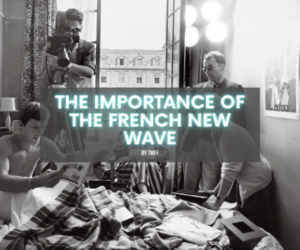Every film fanatic has a slew of favorite directors, one of my favorites being Robert Altman. Altman received five Academy Award Best Director nominations and stands as a lasting icon of the New Hollywood era. His cinematic approach spanned numerous genres, often infused with a “subversive” element characterized by satire and humor, serving as a vessel for his distinctive perspectives.
He gained renown for his “anti-Hollywood” ethos and unconstrained artistic style in thematic choices and directorial techniques. Actors cherished collaborating with him, as he encouraged improvisation, sparking their innate creativity.
Though Altman never won an Oscar, in 2006, the Academy of Motion Picture Arts and Sciences honored his legacy with an Academy Honorary Award. His works MAS*H, McCabe & Mrs. Miller, The Long Goodbye, and Nashville have earned spots in the United States National Film Registry.
A Brief Look Into Altman’s Career
During the 1950s and ’60s, Altman produced a series of short films. In 1964, he took the helm for the television movie “Nightmare in Chicago.” However, it wasn’t until 1967 that he returned to directing feature films. One such film was the intricately crafted and documentary-inspired space journey called “Countdown” (1968), starring Robert Duvall and James Caan as astronauts.
Venturing to Canada, Altman filmed “That Cold Day in the Park” (1969), a foreboding modern gothic drama led by Sandy Dennis as a disturbed spinster who invites a young drifter into her home, resulting in dire consequences.
A turning point in Altman’s career came with his subsequent work, “MAS*H” (1970), which achieved tremendous success. Released amid the Vietnam War, this brilliant dark comedy unfolded during the Korean War yet transparently addressed the more recent conflict.
Altman’s innovative use of overlapping dialogue—a hallmark of his work from that point onward, and his daring shifts from raucous slapstick to the jarring realities of war—unsettled audiences in a manner few Hollywood films had achieved.
Filmmaking Style
Altman gained attention for his genuine and lifelike portrayals of characters and scenarios. His films frequently embraced naturalistic dialogue, exuding a documentary-esque essence. He firmly believed in capturing the intricacies and intricacies of human behavior, motivating his actors to infuse their performances with honesty and genuineness.
Altman’s style rested in his daring departure from conventional narrative conventions. He artfully toyed with time, interweaving storylines and adopting diverse perspectives. He firmly rejected the confines of traditional narrative structures, seeing them as restrictive. Instead, he embraced risk-taking and storytelling experimentation.
Altman Films to Watch
Like many iconic directors, almost all of Altman’s filmography is worth watching. You can learn a lot from his films, with the five below being my favorites from the director. I appreciate Altman’s ability to tell varied stories and characters the most. As much as his style feels similar in each, every story is unlike the other.
The Long Goodbye (1973) – Private investigator Philip Marlowe helps a friend out of a jam, but in doing so, gets implicated in his wife’s murder.
California Split (1974) – When a casual gambler (George Segal as Bill) befriends a professional one (Elliott Gould as Charlie), he begins to mirror his life, sending both deeper into the sleazy gambling world where the stakes keep getting bigger.
Nashville (1975) – Over a few hectic days, numerous interrelated people prepare for a political convention.
3 Women (1977) – Two roommates/physical therapists, one a vain woman and the other an awkward teenager, share an increasingly bizarre relationship.
Gosford Park (2001) – Set in the 1930s, a group of pretentious rich, and famous get together for a weekend of relaxation at a hunting resort. But when a murder occurs, each one of these interesting characters becomes a suspect.

















